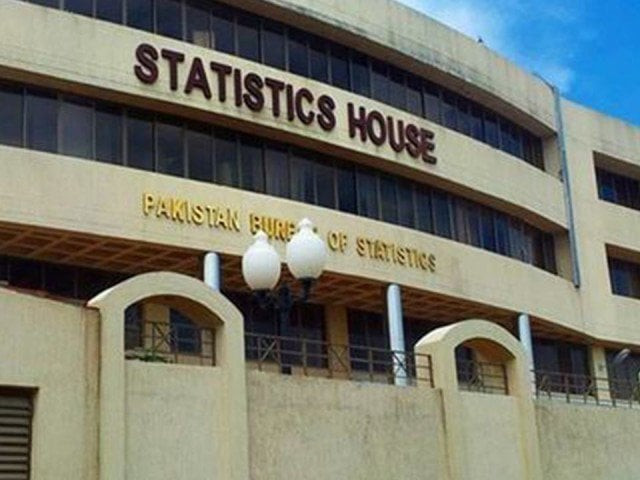Strengthening Pakistan's service exports
ICT sector can drive export revenue, but internet connectivity, policies remain hurdles

Pakistan exported approximately $38 billion worth of goods and services in FY24, an increase from around $35 billion in FY23, according to the Pakistan Bureau of Statistics. While service exports remained relatively stable, rising from $7.6 billion to $7.8 billion, the export of goods grew by $3 billion. The Information and Communications Technology (ICT) sector, often lauded as the second-largest source of crucial export revenue, saw a 25% increase in FY24, adding over $600 million to the total. However, exports from the financial sector collapsed by approximately 80%, and travel-related exports declined by nearly 22%. Other business services, which contributed over $1.5 billion in FY24, also saw a smaller decline of 5%. With service sector imports totalling $10.1 billion, the trade deficit in services stood at $2.3 billion, significantly lower than the $24 billion deficit in goods. The services sector, driven by ICT, is poised to play an increasingly vital role in generating export revenue, especially as the world becomes more digitised.
To understand Pakistan's position, it's important to analyse global trends in service exports. Data from the United Nations ESCAP's Trade Intelligence and Negotiation Advisor (TINA) Trade in Services database reveals that the United States is the largest exporter of services, exceeding $1 trillion in 2023. The United Kingdom follows with $584 billion, while neighbouring India reported $336 billion. Pakistan, in contrast, exported $7.5 billion worth of services in 2023.
Most of Pakistan's service exports are likely conducted through cross-border trade (Mode 1), where foreign entities demand services from Pakistani suppliers without the need for physical presence. This highlights the importance of telecommunications as a medium for service delivery. Despite Pakistan's service exports growing at an average rate of 6% between 2019 and 2023, the country's share of the global market has remained stagnant. In contrast, Pakistan's ICT sector exports have increased by an average of 20% annually during this period, but its global market share has only improved by 0.25%. By comparison, India's ICT exports grew by 14% annually, and its market share increased by 8%, with the country reporting over $250 billion in ICT and other business service exports in 2023. India's service exports are primarily delivered through cross-border trade, but foreign commercial presence in the services sector has gained importance as foreign direct investment (FDI) has increased in recent years.
Although China's service exports are not as large as its goods exports, a significant proportion of its services are delivered through the presence of foreign commercial entities. This allows China to regulate and restrict service flows within its borders, which may be more difficult for smaller, informal setups involved in cross-border trade. China's ICT sector has also performed well, growing at an average of 14% annually between 2019 and 2023.
A comparison of Pakistan and India's commitments under the General Agreement on Trade in Services (GATS) highlights differences in market access limitations. Pakistan's structure is broader and simpler than India's, but to boost service exports, it's crucial to facilitate the flow of temporary skilled workers, such as professionals and executives. Pakistan's GATS commitments focus on the temporary entry of executives and specialists, while India includes more specific categories like business visitors, intra-corporate transferees, and professionals. However, Pakistan's Free Trade Agreement (FTA) with China offers more categories and flexibility, including business visitors, service salespersons, and professionals not covered under GATS. Pakistan's GATS commitments are more restrictive compared to its FTA with China. Like goods trade, WTO members have obligations and specific commitments in services trade under GATS. Notably, Pakistan allows foreign equity participation on a case-by-case basis rather than through specific laws and regulations. It's also important to recognise that developed countries and newer trade agreements increasingly incorporate compliance requirements, prevailing wage standards, and measures to limit the displacement of local workers, which may restrict market access.
Finally, it is crucial for Pakistan to provide its service exporters, including IT businesses and freelancers, with stable and reliable internet connectivity to ensure sustained export growth. Faster and more reliable internet will help ICT firms adopt more efficient digital tools and deliver higher-quality services. According to the Speedtest Global Index, Pakistan's mean mobile broadband speed ranks 101st out of 111 countries, and its fixed broadband speed ranks 145th out of 162. The UAE leads the world in internet speeds for both mediums, while India's mobile internet speed ranks 16th globally. Within Pakistan, major cities like Lahore and Karachi rank poorly in terms of internet speed, placing ICT exporters at a significant disadvantage.
In essence, Pakistani policymakers must prioritise developing and promoting service exports if the country is to reach its $100 billion export target in the coming years. The services sector is not only critical for generating much-needed dollar revenue but also for providing the essential auxiliary services required to support the trade of manufactured goods.
THE WRITER IS THE ASSISTANT PROFESSOR OF ECONOMICS AND RESEARCH FELLOW AT CBER, INSTITUTE OF BUSINESS ADMINISTRATION, KARACHI











1724319076-0/Untitled-design-(5)1724319076-0-208x130.webp)






COMMENTS
Comments are moderated and generally will be posted if they are on-topic and not abusive.
For more information, please see our Comments FAQ